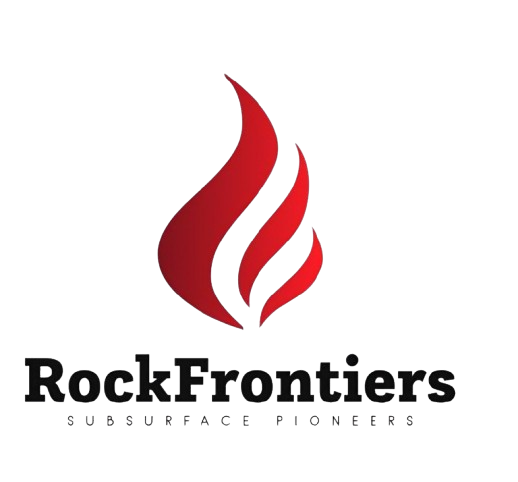🛰️ 2D and 3D Seismic Interpretation
📘 Course Description: This course provides participants with a comprehensive understanding of 2D and 3D seismic interpretation, focusing on practical skills required for effective subsurface mapping and hydrocarbon prospect evaluation. Participants will learn how to interpret seismic data in time …
Overview
📘 Course Description:
This course provides participants with a comprehensive understanding of 2D and 3D seismic interpretation, focusing on practical skills required for effective subsurface mapping and hydrocarbon prospect evaluation. Participants will learn how to interpret seismic data in time and depth domains, correlate with well data, build structural and stratigraphic frameworks, and assess reservoir potential. Real-world examples and interpretation exercises using actual datasets will be emphasized throughout.
🎯 Who Should Attend:
-
Geologists & Geophysicists
-
Exploration & Development Teams
-
Subsurface Engineers
-
Reservoir Modellers
-
Technical Interpreters and Earth Scientists
-
E&P Data Analysts and Geoscience Technicians
🧾 Training Format:
-
Duration: 5 Days
-
Mode: In-person / Virtual Live
-
Methodology: Lectures, seismic interpretation demos, hands-on exercises using interpretation software or printed seismic lines
-
Materials Provided: Seismic sections (2D & 3D), well logs, interpretation guides, maps, and model examples
🗓️ Daily Agenda with Time Breakdown
🟨 Day 1 – Introduction to Seismic Interpretation & 2D Concepts
| Time | Topic |
|---|---|
| 09:00 – 09:30 | Welcome, Objectives & Course Overview |
| 09:30 – 10:30 | Seismic Principles Refresher: Reflection, Velocity, Resolution |
| 10:30 – 10:45 | ☕ Coffee Break |
| 10:45 – 12:15 | Anatomy of a 2D Seismic Section – Horizons, Faults, Terminations |
| 12:15 – 13:15 | 🍽️ Lunch Break |
| 13:15 – 14:45 | 2D Interpretation Workflow: Line Selection, Well Ties |
| 14:45 – 15:00 | ☕ Coffee Break |
| 15:00 – 16:30 | Practical: Horizon & Fault Picking on 2D Lines |
🟨 Day 2 – Structural Interpretation Using 2D and Transition to 3D
| Time | Topic |
|---|---|
| 09:00 – 10:30 | Structural Styles in Seismic: Extensional, Compressional, Inversion |
| 10:30 – 10:45 | ☕ Coffee Break |
| 10:45 – 12:15 | Correlation of 2D Sections and Structural Mapping |
| 12:15 – 13:15 | 🍽️ Lunch Break |
| 13:15 – 14:45 | Introduction to 3D Seismic Volumes and Navigation |
| 14:45 – 15:00 | ☕ Coffee Break |
| 15:00 – 16:30 | Hands-On: 3D Volume Orientation and Inline/Crossline Views |
🟨 Day 3 – 3D Seismic Interpretation and Fault Mapping
| Time | Topic |
|---|---|
| 09:00 – 10:30 | 3D Horizon Interpretation and Tracking Techniques |
| 10:30 – 10:45 | ☕ Coffee Break |
| 10:45 – 12:15 | Fault Picking: Throw, Dip, Relay Zones, and Fault Geometry |
| 12:15 – 13:15 | 🍽️ Lunch Break |
| 13:15 – 14:45 | Seismic Attributes for Structural Mapping |
| 14:45 – 15:00 | ☕ Coffee Break |
| 15:00 – 16:30 | Practical: Fault & Horizon Mapping in 3D Cube |
🟨 Day 4 – Stratigraphic Interpretation and Reservoir Characterization
| Time | Topic |
|---|---|
| 09:00 – 10:30 | Stratigraphic Features: Onlap, Downlap, Unconformities |
| 10:30 – 10:45 | ☕ Coffee Break |
| 10:45 – 12:15 | Seismic Facies and Reservoir Geometry |
| 12:15 – 13:15 | 🍽️ Lunch Break |
| 13:15 – 14:45 | Seismic-Well Tie and Time-Depth Conversion Essentials |
| 14:45 – 15:00 | ☕ Coffee Break |
| 15:00 – 16:30 | Isochron and Attribute Maps for Reservoir Prediction |
🟨 Day 5 – Integrated Case Study and Prospect Mapping
| Time | Topic |
|---|---|
| 09:00 – 10:30 | Mapping Prospects and Traps: Structural, Stratigraphic, Combination |
| 10:30 – 10:45 | ☕ Coffee Break |
| 10:45 – 12:15 | Volumetric Calculations & Risk Assessment from Seismic |
| 12:15 – 13:15 | 🍽️ Lunch Break |
| 13:15 – 14:45 | Group Exercise: Build a Subsurface Interpretation Map |
| 14:45 – 15:00 | ☕ Coffee Break |
| 15:00 – 16:30 | Presentation of Results, Q&A, Certification |
Target audiences
- Reservoir Engineers, Geologists
You May Like
📘 Underbalanced Drilling (UBD) Techniques and Safety
🎯 Course Description: This intensive 5-day program focuses on Underbalanced Drilling (UBD) – an advanced technique used to drill wells where the hydrostatic pressure of the fluid is intentionally kept below formation pressure. Participants will learn how to implement UBD …
📘 IOSH Managing Safely
🎯 Course Description: A practical, 5-day program designed to help managers and supervisors learn how to manage safety and environmental responsibilities in their teams. Emphasis is placed on identifying risks, measuring performance, and leading safely using internationally recognized good practices. …
📘 IWCF Level 3 Well Control (Surface BOP)
🎯 Course Description: This is an intensive course aimed at drilling / well service personnel needing to gain supervisory competence in well control using surface blow‑out preventers (BOP) under the IWCF standard. It covers theory, hands‑on practice, and assessments for …
Advanced Specialist Petroleum GeoMechanics
📘 Course Description: This elite-level course is tailored for petroleum geomechanics specialists and senior subsurface professionals engaged in complex field development projects. It provides a deep technical dive into stress modeling, anisotropic rock behavior, coupled geomechanical-reservoir simulation, fault/fracture mechanics, and …
📘 OSHA 30‑Hour General Industry Safety and Health
🎯 Course Description: This 5‑day course provides in‐depth knowledge of workplace safety and health in general industry sectors. It covers OSHA regulations, hazard recognition, safety programs, and industry best practices. Participants will gain the expertise needed to maintain a safe …






